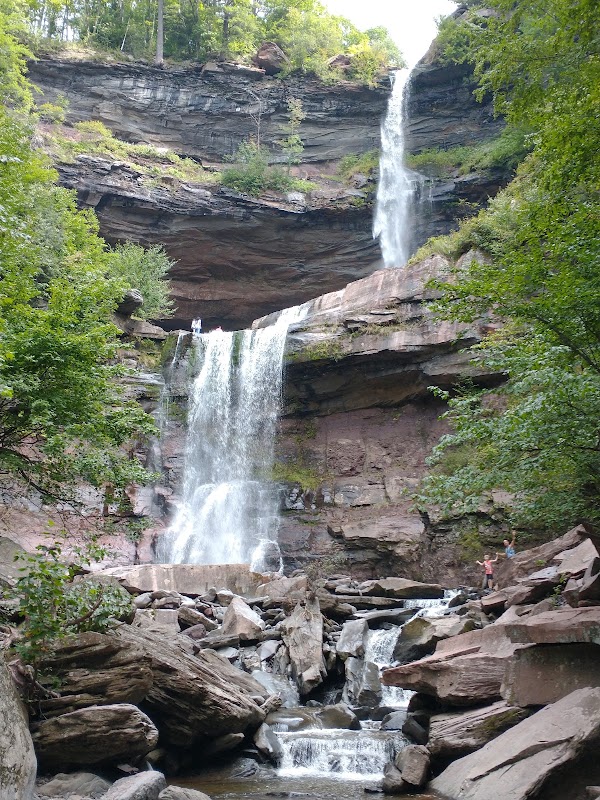
Riding the Rapids: Whitewater Rafting the Deerfield River During Release Days in Charlemont, MA
Release days on the Deerfield River near Charlemont, MA, transform the calm river into a whitewater enthusiast’s playground. Experience intense rapids amid scenic forest corridors, with guided trips ensuring a safe yet heart-pounding ride that tests your spirit and skill.
Book Guided Tours for Safety and Local Expertise
Release day rapids are powerful and unpredictable. Guided trips provide professional insight and safety equipment, making them ideal for first-timers and those unfamiliar with the river’s behavior.
Dress in Layers with Quick-Dry Fabrics
Expect splashes and cooler temperatures. Wear moisture-wicking clothes that dry fast and dress in layers to adapt to changing weather and river spray.
Arrive Early to Watch the Release and Prepare
Release days follow schedules—arriving early allows time to watch the river’s build-up, attend safety briefings, and secure the best gear rentals without rush.
Stay Hydrated and Protect Against Sun Exposure
Water and sun can drain energy fast. Bring a hydration pack and apply waterproof sunscreen to maintain endurance throughout your trip.
Riding the Rapids: Whitewater Rafting the Deerfield River During Release Days in Charlemont, MA
The Deerfield River awakens with fierce energy during scheduled release days, daring adventurers to match its pulse. Located in Charlemont, Massachusetts, this stretch beckons thrill-seekers with waves that surge and curl, pushing rafts forward with a lively, relentless force. The river’s rapids here are flagrantly alive—each rapid a challenge that demands respect and quick reflexes. Paddlers will find themselves in a dynamic contest where water carves bold lines around granite and shaped logs, occasionally exploding into foamy cascades.
Release days are not just a ride—they're an event. Coordinated by dam operators, the river flows transform from a quiet current into a roaring playground, typically from late spring through early summer. This temporary surge makes the Deerfield River one of New England’s premier whitewater destinations, especially its Class III-IV rapids that test both newcomers and seasoned raft guides.
The entry and exit points near Charlemont are practical and accessible, with well-marked put-in spots offering quick launches. Riders should expect a 6- to 8-mile stretch, depending on the chosen route, with intense sequences packed inside that distance. Physical stamina is essential as constant paddling keeps the craft nimble against waves that command attention.
Safety is non-negotiable. Proper gear, including helmets and personal flotation devices (PFDs), are mandatory, and guided trips are recommended for novices. Briefings on river etiquette and awareness build confidence before launching into the current brimming with unpredictability. Hydration and layered moisture-wicking clothing prepare you for both the splash and moments of cool shade beneath towering maples and pines.
The river tempers its power with scenic forested banks that slip past like green shadows, inviting a moment’s gaze between adrenaline bursts. Wildlife occasionally flit near the shore—the sharp call of a bald eagle or the sudden dart of a snapping turtle among river stones. These insights deepen the link between the adventurer and the river, a living entity fiercely itself.
Timing your visit is crucial; release schedules typically run from May through July, with peak water often in late spring after heavy snowmelt and rainfall. Summer months can offer warmer air temperatures but a slightly tamer flow. Fall and winter quiet the river to its usual peaceful whispers, better suited for fishing or gentle kayaking.
For those ready to step into the pulse of the Deerfield’s roar, release day rafting is a crisp, pure encounter with raw nature and well-earned exhilaration. Arrive prepared and alert, for the river’s mood shifts rapidly, but reward those who meet it with an experience that is thrilling, memorable, and beyond ordinary.
Nearby Trips
All Adventures
Boat Charters
Water Activities
Adventures near Greenfield, Massachusetts
Discover the unique and memorable adventures that make Greenfield, Massachusetts special.
Frequently Asked Questions
When are the Deerfield River release days scheduled?
Release days generally occur from late May through early July, subject to dam operators' schedules and weather conditions. Exact dates are published by local rafting companies and environmental agencies.
Can beginners participate in release day rafting on the Deerfield River?
Yes, but beginners should book guided trips with experienced outfitters who provide safety briefings, equipment, and trained guides to manage river challenges.
What should I wear for whitewater rafting here?
Wear a comfortable wetsuit or quick-dry layers, a personal flotation device, a helmet, and sturdy water shoes. Dress in layers to adjust to weather and river water temperatures.
Are there specific sections recommended for advanced rafters only?
Certain rapids along the Deerfield during release days reach Class IV difficulty and are best for those with solid whitewater experience. Your guide will tailor the route to your skill level.
Is it possible to watch the release without rafting?
Yes, designated viewing areas near launch sites offer a chance to witness the river swell and rapids form, providing thrilling odds for spectators or photographers.
How long is a typical rafting trip during release days?
Trips generally last between 3 to 4 hours, covering around 6 to 8 miles of river, depending on water flow and route chosen.
Recommended Gear
Helmet
Protects your head from rocks and unexpected collisions amid turbulent rapids.
Personal Flotation Device (PFD)
Ensures buoyancy in swift currents and is legally required during whitewater activities.
Quick-Dry Clothing
Keeps you comfortable after water splashes and helps regulate body temperature.
Waterproof Footwear
Provides grip and protects feet from cold water and sharp riverbed obstacles.
Local Insights
Hidden Gems
- "Look for deep, calm eddies just beyond rapids where fish gather and eagles often perch"
- "Small river-side springs around Flat Rock offer quiet rest points off the main currents"
Wildlife
- "Bald eagles and ospreys patrol the skies, while river otters sometimes surface for a quick swim."
- "Listen for wood frogs and spring peepers during quieter moments along riverbanks."
History
"The Deerfield River was historically a key resource for the mill towns downstream and remains an important region for hydropower, balancing conservation with recreation."
